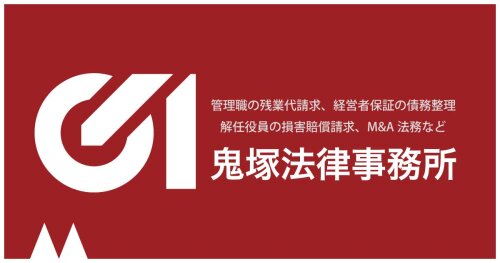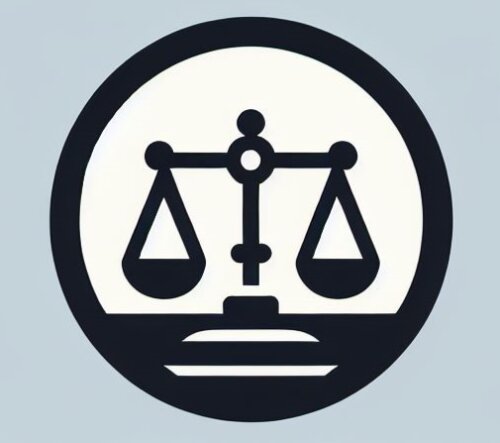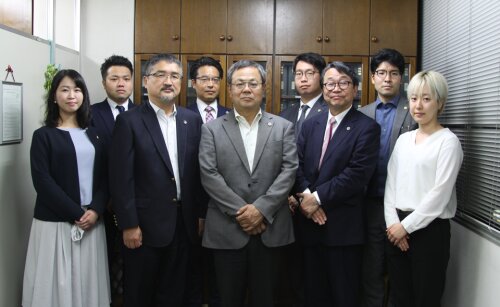Best Appeal Lawyers in Japan
Share your needs with us, get contacted by law firms.
Free. Takes 2 min.
Or refine your search by selecting a city:
List of the best lawyers in Japan
About Appeal Law in Japan
Appeal law in Japan is part of the judicial process that allows parties in a legal dispute to seek a review of a judgment given by a court. The appeal process is fundamental in maintaining the integrity and reliability of the legal system by providing a mechanism to address errors or injustices in legal decisions. In Japan, different types of appeals are available in civil, criminal, and administrative cases, each governed by specific procedural rules. Understanding these rules is crucial for parties wishing to contest a court's decision.
Why You May Need a Lawyer
Appealing a court decision in Japan can be complex, requiring a thorough understanding of legal procedures and substantial legal expertise. You may need a lawyer if you believe there has been a miscarriage of justice in your case or if you're unsatisfied with the court’s ruling. Lawyers can offer valuable support in preparing the necessary documentation, presenting legal arguments effectively, and navigating the complexities of the appeal system. Additionally, in criminal cases, a lawyer can be essential in protecting fundamental rights and achieving a fair trial.
Local Laws Overview
The Japanese legal system allows for different types of appeals depending on the nature of the case. In civil cases, a dissatisfied party can file a Kōso appeal (first appeal) and, subsequently, a Jokoku appeal (second appeal) provided certain conditions are met. In criminal cases, defendants have the right to file similar appeals. However, each type of appeal must be filed within specific time limits and meet eligibility criteria, such as errors in the application of law or facts established by a lower court. The Administrative Case Litigation Act also permits appeals in cases involving administrative decisions.
Frequently Asked Questions
What is the time limit to file an appeal in Japan?
Generally, a Kōso appeal in civil cases must be filed within two weeks of the initial judgment, while a Jokoku appeal typically must be filed within two weeks following the Kōso appeal judgment. In criminal cases, similar time limits apply.
Can any judgment be appealed?
Not all judgments are eligible for an appeal. Typically, final judgments can be appealed, but it is essential to establish grounds such as errors in the application of law or procedural mistakes.
What are the grounds for appeal in a criminal case?
Appeals in criminal cases may be based on errors in legal interpretation, procedural mistakes, or misjudged facts that could have influenced the verdict.
Is a lawyer required to file an appeal?
While not legally required, hiring a lawyer is highly recommended due to the complexity of the appeal process and the technical expertise needed to draft legal arguments.
What happens after an appeal is filed?
Once an appeal is filed, the higher court will re-examine the case based on the submitted appeal. The appeal process may involve additional hearings or a review of the legal and factual aspects.
Can new evidence be presented during an appeal?
Presenting new evidence is generally restricted during an appeal, as appeals focus on reassessing legal interpretations and procedural issues. However, new evidence might be considered if it significantly impacts the case.
What are the possible outcomes of an appeal?
The appellate court may uphold, reverse, or modify the initial judgment. In some cases, it may remand the case back to the lower court for retrial.
Is the appeal decision final?
The decision of the appellate court can be final, but there may still be a possibility of a further appeal to the Supreme Court under exceptional circumstances.
Can you appeal a settlement agreement?
No, settlement agreements are generally not subject to appeal as they are mutual agreements between the parties involved.
What is the role of the Supreme Court in appeals?
The Supreme Court in Japan primarily handles Jokoku appeals and is the final arbiter of legal disputes. Its role is to ensure uniformity in law interpretation.
Additional Resources
For those seeking further information or assistance, consider reaching out to the Japan Federation of Bar Associations, which can provide referrals to qualified legal professionals specializing in appeals. Additionally, the Ministry of Justice in Japan offers resources and guidance related to the legal system and processes.
Next Steps
If you believe you need legal assistance in filing an appeal, consider contacting a lawyer specializing in appellate law to discuss your case in detail. Gather all related documents, such as the court's decision, and be prepared to discuss any errors or grievances you have. Early consultation with a legal expert can provide you with a clearer understanding of the feasibility and potential outcomes of your appeal.
Lawzana helps you find the best lawyers and law firms in Japan through a curated and pre-screened list of qualified legal professionals. Our platform offers rankings and detailed profiles of attorneys and law firms, allowing you to compare based on practice areas, including Appeal, experience, and client feedback.
Each profile includes a description of the firm's areas of practice, client reviews, team members and partners, year of establishment, spoken languages, office locations, contact information, social media presence, and any published articles or resources. Most firms on our platform speak English and are experienced in both local and international legal matters.
Get a quote from top-rated law firms in Japan — quickly, securely, and without unnecessary hassle.
Disclaimer:
The information provided on this page is for general informational purposes only and does not constitute legal advice. While we strive to ensure the accuracy and relevance of the content, legal information may change over time, and interpretations of the law can vary. You should always consult with a qualified legal professional for advice specific to your situation.
We disclaim all liability for actions taken or not taken based on the content of this page. If you believe any information is incorrect or outdated, please contact us, and we will review and update it where appropriate.
Browse appeal law firms by city in Japan
Refine your search by selecting a city.















